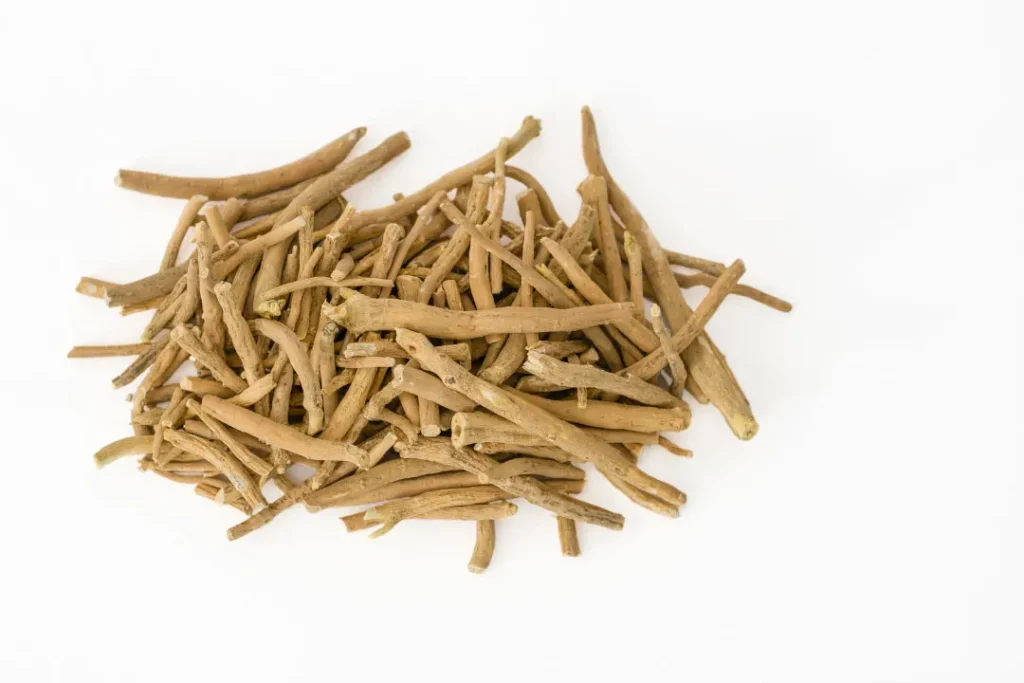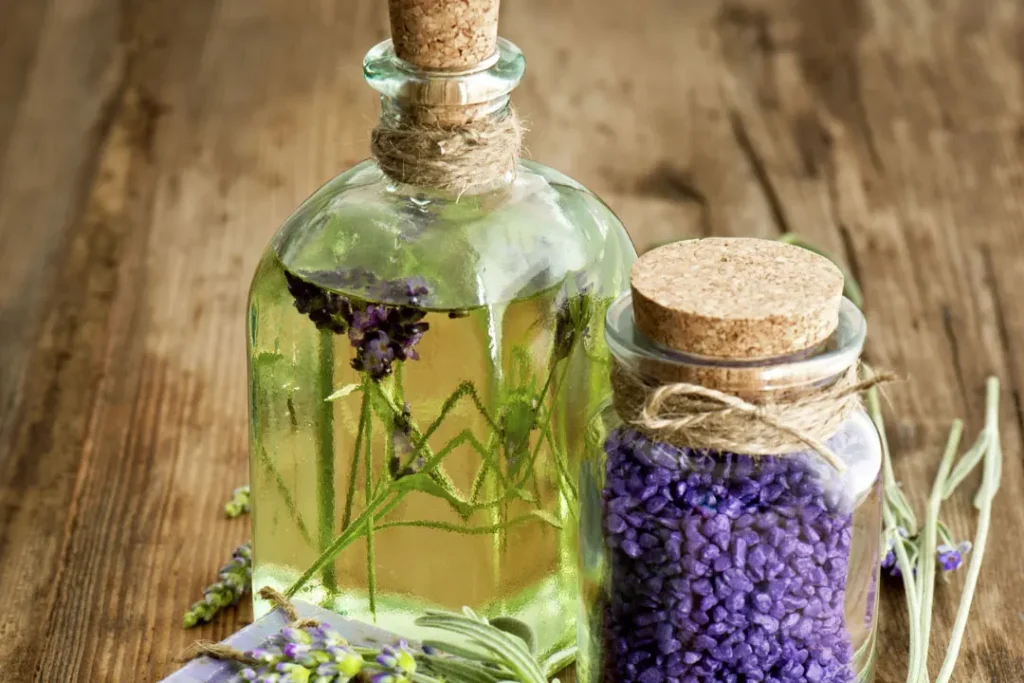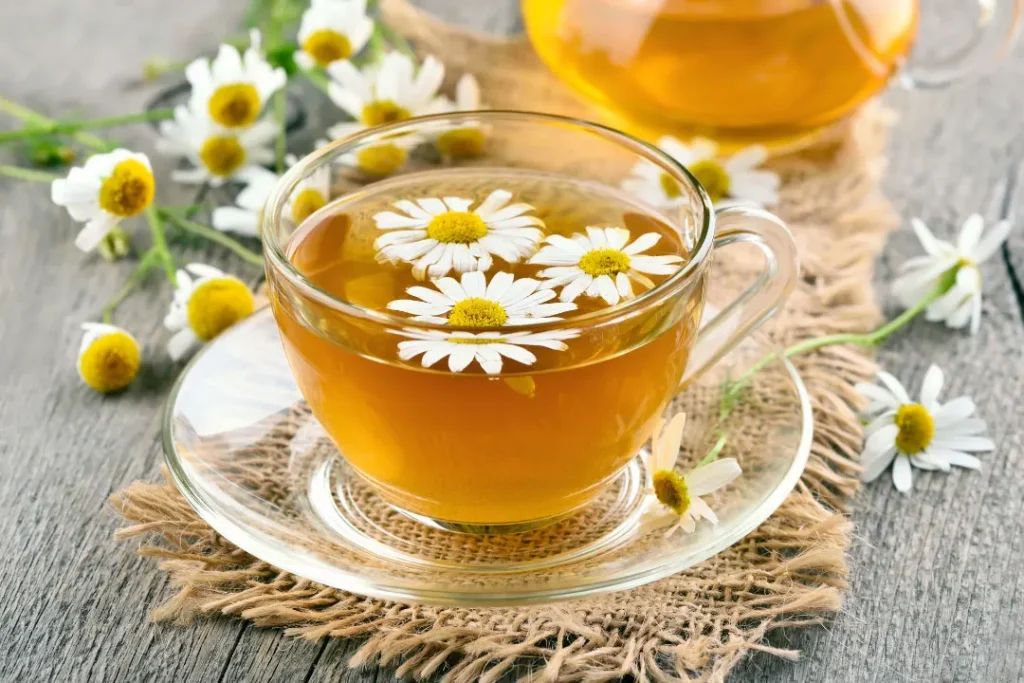Stress and worry constantly invade every aspect of our contemporary lives, affecting our relationships, productivity, and general well-being. These mental agitations can typically cause problems with sleep and lingering discomfort. The pressures of today’s environment magnify these difficulties, leaving many of us looking for practical answers. A potential lifeline in the face of these ubiquitous problems is provided by the world of natural treatments. Below, you can read how to make the best use of natural remedies and combat the effects of stress and anxiety, achieving a balance between serenity and strength.
You May Also Like:
WELLENA SLEEP RESTORE VS DELTA BRAINLUXURY
BURDOCK ROOT FOR LIVER HEALTH: 3 PROVEN REASONS TO TRY THIS HEALING HERB
Protect Your Mind: How to Reduce Stress and Anxiety With Natural Remedies is an original (MedNewsPedia) article.
Understanding stress and anxiety
Stress and worry have become ingrained in our everyday lives due to the modern rush. These intrusions disrupt our mental balance, setting off a cascade of physiological reactions that impact how we function as a whole. Some of the signs of this internal conflict can include:
- Rapid heartbeat
- Tensed muscles
- Racing thoughts
Stress is a persistent state of being. It is a physiological reaction and a survival strategy ingrained in our evolutionary history. Our bodies release hormones like cortisol in response to difficulties, preparing us for action. The continual onslaught of stimuli in modern life, however, frequently keeps these reactions in overdrive, leading to chronic tension.
Anxiety, too, can take its hold. This mood is accompanied by racing thoughts, increased attentiveness, and even restlessness. It’s a constant presence for many people that casts a shadow over everyday activities, making it challenging to completely inhabit the present moment.
Long-term exposure to these conditions might be harmful. Our health is significantly impacted by stress and anxiety in a number of ways, including sleep disruption and a weakened immune system. Chronic stress has been related to cardiovascular issues, digestive problems, and even cognitive deficiencies.
How to reduce stress and anxiety:
The power of natural remedies
In a market that is oversaturated with pharmacological interventions meant to ease the burden of stress and anxiety, natural remedies offer strong alternatives. These time-tested techniques offer a straightforward path to relief.
Natural cures have a built-in simplicity that aligns with the spirit of natural wellness. They adopt a holistic approach, focusing on the primary causes of stress and anxiety in contrast to their pharmaceutical counterparts. These treatments offer a perspective that treats the entirety of our being, attending to both the mental and physical aspects of our health.
Integrating natural remedies into your daily routine doesn’t necessitate significant disruptions. Minor changes, such as concentrated breathing exercises, regular exercise, and mindful food decisions, can work in harmony with natural cures to create a cogent and sustainable approach to well-being. In addition to addressing acute symptoms, this strategy builds a solid basis for long-term mental and physical wellness.
Sensoril Ashwagandha is one standout in the field of natural therapies. Its reputation for bolstering the body’s reaction to stress, which has origins in ancient Ayurvedic traditions, has only been strengthened by scientific research. Its effect on cortisol levels, in particular, is a crucial factor in stress reduction, making it a strong candidate for easing the physiological pressures of stress.
How to reduce stress and anxiety:
Exploring ashwagandha as a natural remedy
The adaptogenic qualities of ashwagandha are the source of its strength. These characteristics help enhance the body’s resistance to stress, aiding us in coping with the ongoing demands of contemporary life. Its role as a natural regulator, controlling the levels of our stress hormones, supports its status as a much sought-after natural remedy.
The herb’s strategy is based on how it affects cortisol, a vital component of the stress response. Ashwagandha helps to maintain a healthy stress response by influencing cortisol levels, thereby mitigating the negative effects of long-term stress. The herb’s soothing effects are demonstrated by its counteraction to the physiological effects of stress, which can range from increased heart rates to disturbed sleep patterns.
Ashwagandha also boasts potential neuroprotective qualities that support cognitive health amid life’s stressful currents. According to research, it helps to maintain cognitive function, protecting against the mental deficits frequently linked to chronic stress.

How to reduce stress and anxiety:
The role of omega-3 fatty acids in stress management
Omega-3 fatty acids, well regarded for their significant effect on brain function, prove themselves to be a strong ally in the fight against stress. These important fats, which are frequently found in fatty fish and certain plant sources, have a significant impact on our physiological health.
Omega-3s are known for their powerful anti-inflammatory properties. They are essential in regulating the body’s inflammatory response, which is a crucial factor in the physiological changes brought on by stress. Omega-3s indirectly aid in stress reduction by reducing inflammation and alleviating the strain on our body’s systems.
Additionally, these fatty acids can support cognitive function. They affect the construction and operation of brain cell membranes, which could increase cognitive resilience in the face of stress. The complex interactions between omega-3 fatty acids and neurotransmitters further highlight their relevance, potentially impacting how effectively people regulate their emotions and mood.
The therapeutic potential of omega-3 fatty acids in stress reduction is supported by research. According to studies, regularly consuming these fatty acids may reduce stress-related symptoms and act as a buffer against the physiological effects of long-term stress.
How to reduce stress and anxiety:
Lavender essential oil
One natural remedy noted for its soothing properties is lavender essential oil, which is derived from the fragrant lavender plant. Its scent can be inhaled or used in aromatherapy to lessen tension and anxiety.
According to research, lavender oil may have an effect on the neurological system, fostering calm and soothing frayed nerves. Its mild fragrance has been demonstrated to reduce blood pressure and pulse rate, adding to a general feeling of calm. Utilizing lavender essential oil’s stress-relieving effects on a regular basis through diffusers, sprays, or even diluted topical application might yield positive results.

How to reduce stress and anxiety:
Chamomile tea
The moderate calming properties of chamomile tea, which is made from the dried flowers of the chamomile plant, could help you unwind and reduce anxiety. Compounds in this herbal infusion interact with certain brain receptors and may have relaxing effects.
The natural calming effects of chamomile also benefit the digestive tract, easing the physical strain that is frequently brought on by stress. Before going to bed or in times of stress, sipping on a warm cup of chamomile tea may be a soothing and beneficial approach to boost your mental health.
How to reduce stress and anxiety:
Exercise and physical activity
Regular physical activity and exercise are effective natural treatments for lowering stress and anxiety. Exercise triggers the release of endorphins, which are organic brain chemicals that improve mood. These endorphins help reduce stress, encourage feelings of well-being, and even enhance sleep.
Regular physical activity, whether it involves a quick stroll, an intense workout, yoga, or swimming, can have a big influence on your mental toughness. Exercise not only reduces the physiological consequences of stress but also gives you the mental clarity and balanced perspective you need to handle obstacles.

How to reduce stress and anxiety:
Integrating nature’s allies into your routine
Incorporating the potential of holistic remedies, such as Sensoril Ashwagandha and omega-3 fatty acids, into your daily routine doesn’t demand complex maneuvers. Rather, subtle yet impactful adjustments can seamlessly weave these natural allies into your lifestyle, bolstering your response to stress and anxiety.
Begin with mindful moments. Dedicate brief interludes to engage in simple breathing exercises. Inhale tranquility, exhale tension. Over time, this practice has the potential to recalibrate your stress response, nudging it toward a more composed state.
Movement also plays a crucial role. Regular physical activity, whether a leisurely walk or an invigorating yoga session, triggers the release of endorphins. These natural chemicals counteract the effects of stress hormones, fostering a sense of well-being.
Dietary decisions are important, too. Opt for foods like fatty fish, flaxseeds, and walnuts that are high in omega-3 fatty acids. These healthy choices help maintain total physiological balance in addition to supporting the health of your brain.
It’s also crucial to recognize how technology affects your level of stress. Consider taking a tech break before bedtime. This is because quality sleep, a key component of stress management, is hampered by the blue light emitted by screens.
For additional aid, consider Stress & Body Ashwagandha + Omega-3 from Kori Krill Oil to help your efforts to reduce stress even further. The strength of Sensoril Ashwagandha and omega-3 fatty acids are encapsulated in this carefully crafted combination, allowing for a seamless integration of their advantages into your everyday routine.
Kori Krill Oil products help mitigate the stresses of contemporary life by restoring balance through the resilience of natural remedies. Their approach is aimed at harnessing the convergence of natural wisdom and scientific advancement.
How to reduce stress and anxiety:
Conclusion
From the calming aroma of lavender essential oil to the gentle sedation of chamomile tea and the invigorating effects of regular exercise, nature offers multifaceted solutions. These remedies, deeply rooted in traditional wisdom, extend a hand towards equilibrium in our fast-paced lives.
By incorporating these practices into your daily routine, the potential for greater resilience and tranquility in your daily existence becomes even stronger. As you journey forward, consider these natural tools as allies in your pursuit of a more balanced and serene life.

Further Reading For Additional References:
National Library of Medicine: Chamomile: A herbal medicine of the past with bright future
National Library of Medicine: Lavender and the Nervous System
National Library of Medicine: Omega-3 Supplementation and Stress Reactivity of Cellular Aging Biomarkers: An Ancillary Substudy of a Randomized, Controlled Trial in Midlife Adults
Forbes: 7 Health Benefits of Ashwagandha, Backed By Science
Mount Sinai: Herbal Medicine
Important Note: The information contained in this article is for general informational purposes only, and should not be construed as health or medical advice, nor is it intended to diagnose, prevent, treat, or cure any disease or health condition. Before embarking on any diet, fitness regimen, or program of nutritional supplementation, it is advisable to consult your healthcare professional in order to determine its safety and probable efficacy in terms of your individual state of health.
Regarding Nutritional Supplements Or Other Non-Prescription Health Products: If any nutritional supplements or other non-prescription health products are mentioned in the foregoing article, any claims or statements made about them have not been evaluated by the U.S. Food and Drug Administration, and such nutritional supplements or other health products are not intended to diagnose, treat, cure, or prevent any disease.


